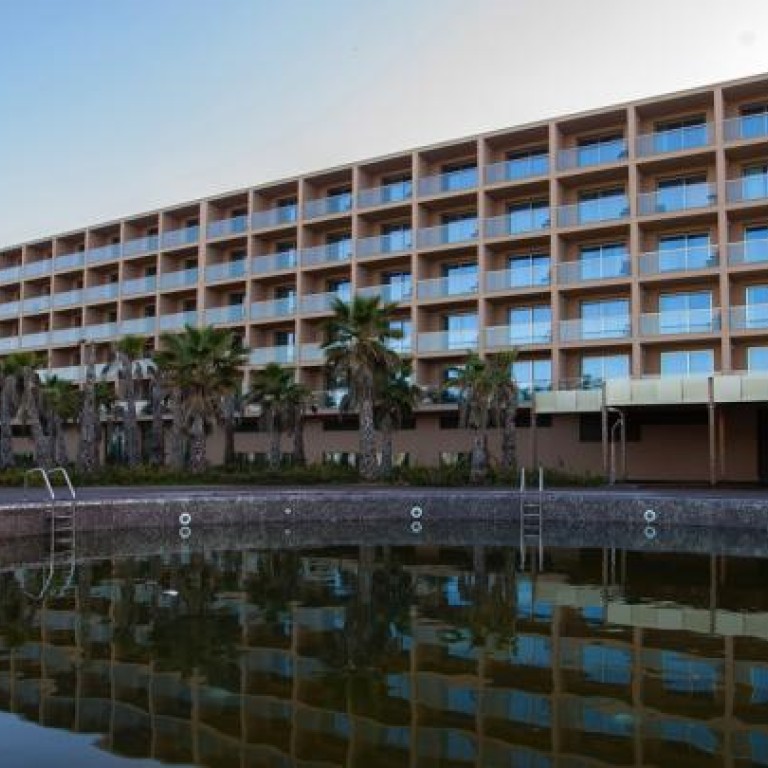
Golden chance to soak up sun
Portugal's residency incentive is attracting Chinese investors, writes Susie Watkins Polakova
Hundreds of investors from China are clamouring for a golden opportunity to invest in Portuguese property. Following clarification of a new visa system, which automatically offers residency in return for a substantial investment in either a home or business, the so-called "Golden Visa" is keeping Portuguese legal firms busy.
Now, everyone in Portugal, from the finance minister down, is hoping that the new rule, brought in earlier this year, can shine a little sunshine on the ailing economy.
The country certainly needs it. Prices of property have fallen by more than 20 per cent since 2008, the economy shrank by 3 per cent last year and, in a sign that virtually no new houses are being built, the number of construction companies that went bust last year was up by more than 50 per cent. Unemployment is at 16 per cent, while more than 2 per cent of the population, predominantly the young and educated middle classes, have simply left.
So the Golden Visa, officially the Autorizacao de Residencia para Atividade de Investimento, whose terms were revised in January, has a lot of work to do.
The details are simple: in return for buying property worth more than €500,000 (HK$5 million), or investing more than €1 million in a Portuguese bank, or business or by creating 30 jobs, overseas buyers get a permanent Portuguese visa, which is a door into Europe. All investments must be held for five years.
The move has been pushed by the country's minister of finance under the Living in Portugal campaign, which aims to attract investment in the residential tourism segment, which in turn can contribute to job creation in the property sector. However, the name of the campaign is perhaps misplaced, as early indications seem to be that investors are looking to buy in Portugal, but not stay in Portugal.
Leading Portuguese law partner Francisco Barata Salgueiro, who has been on a trade mission to China with his firm Neville de Rougemont, says several hundred Asian investors are ready to move in. In fact, the only reason they haven't already done so is that the system is so easy that they are suspicious.
He says: "The main concern that was conveyed to us by Chinese investors was if the programme was as simple as it seemed to be, namely if all that was required was the investment and nothing else."
He reassured them it really was that simple, even if they did not speak Portuguese. "The expectation now is for hundreds or perhaps more of clients using our company to proceed," he says.
The Portuguese cabinet is being battered as it pushes through the toughest austerity measures in living memory, aimed at meeting the terms of a €78 billion bailout.
Taxes are rising to levels that even Finance Minister Vitor Gaspar admits are "enormous", so any injection of cash is most welcome.
Before the introduction of the IRP, as the visa is known, there were no foreign investment limits in Portugal. But Frederico Menoca, director of Savills Abacus in Lisbon, points out: "Nor was there any specific advantage."
So the IRP is a welcome boost to an already cushioned sector of the property market.
"The upper end of the market has not been as exposed to the wider economic situation. Some top-end properties are still achieving prices per square metre that are not more than 20 per cent down on peak prices," Menoca says.
"I wouldn't use the expression 'falling over themselves to buy', but it's true that more people are now starting to seriously look at this."
While agents may be mildly bullish, property investment in Portugal is not for the faint-hearted, with the average price of housing about €1,008 per square metre, down about 5.2 per cent year-on-year. However, prices in Lisbon and the Algarve in the prime and superprime markets are holding up with average prices exceeding €1,400, according to agents.
Alison Hojbjerg, who offers the prime golfing resorts for Savills in the Algarve, says: ""The secret is to buy in the right location. It has been evident over the past few years that prices in Quinta do Lago and the so-called Golden Triangle have not experienced the same ups and downs as other areas."
Christian de Meillac, the director of Knight Frank's international residential team that represents sales in the Algarve, says there has been an increase in Chinese investment in Portugal over the past two years, although nothing yet from this year's push.
"Towards the end of 2012, we started to see a surge of interest in property in the Algarve, with some notable sales in the central Algarve above €4 million," he says.
"The majority of the interest is in the €500,000 to €1.5 million range with a focus on established developments, but not exclusive to them."
Buying Guide
You would be best looking in western Algarve near Lagos or Luz, where you may be able to find a two-bedroom apartment with golf and pool access. Such properties are likely to be in a gated domain with no sea views, possibly inland and on a mountain with limited views.
You could look in both central and western Algarve and find a detached villa with three to five bedrooms with a distant ocean view, private pool and modern finishes. This would probably be near to or, on rare occasions, in one of the established developments. Close proximity to the ocean and easy access to highways, airport, golf and amenities.
